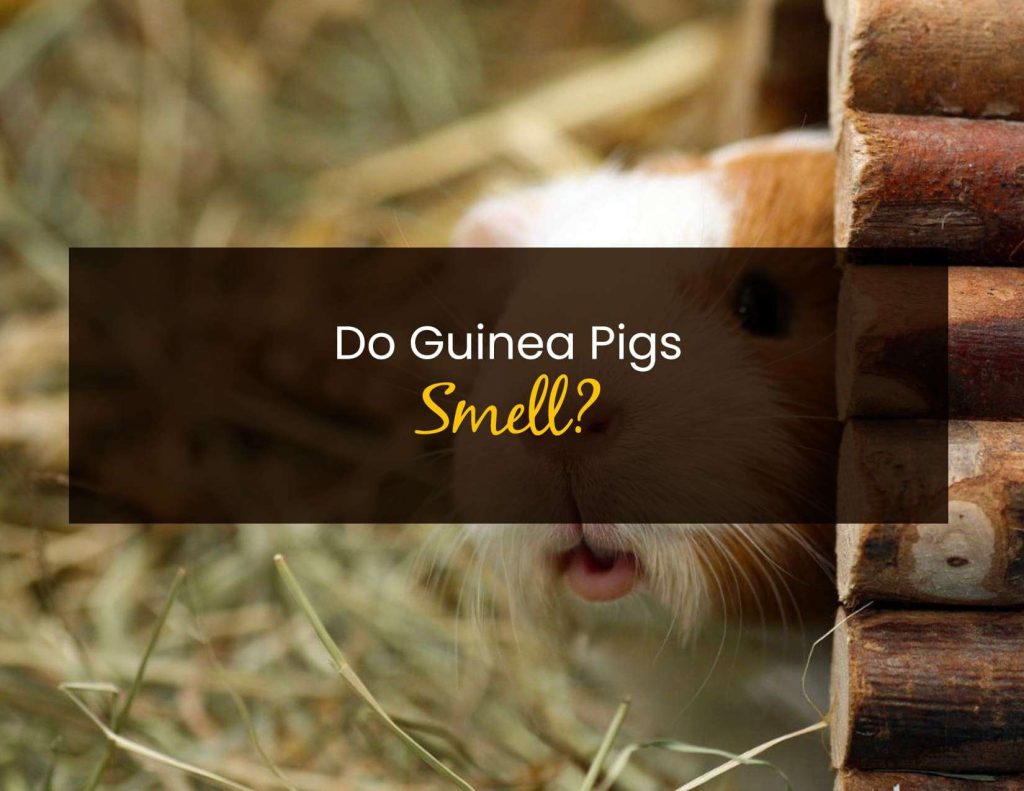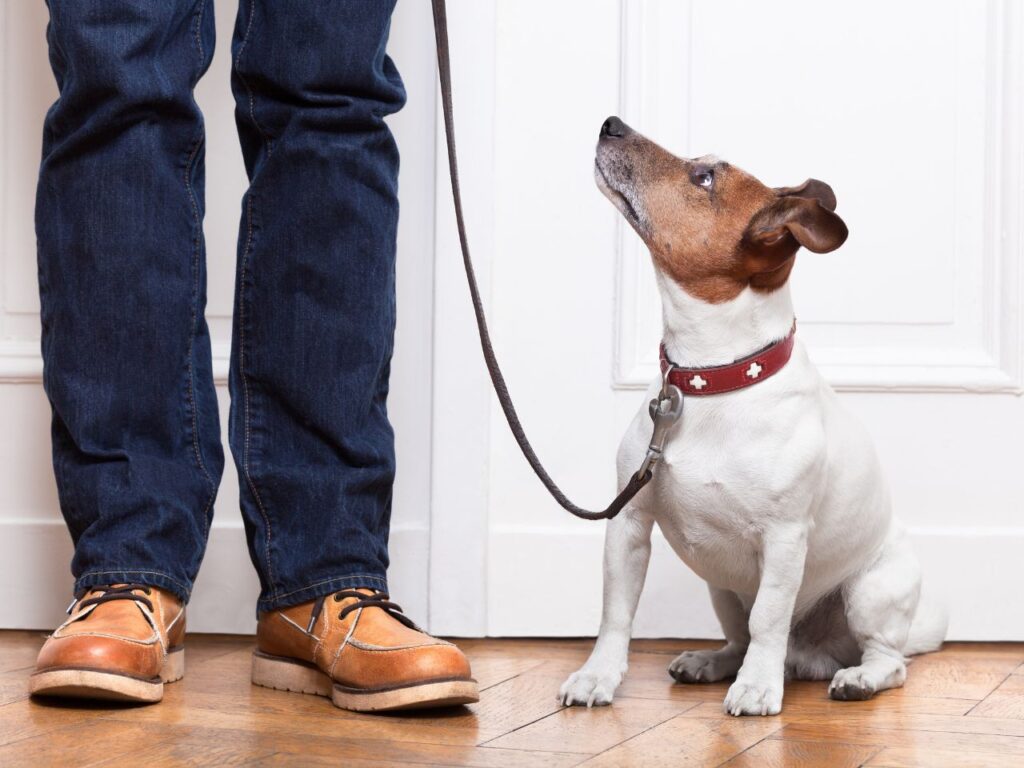If you are a new owner of a cute and cuddly guinea pig or are thinking about getting one for yourself, you know by now that they are very timid and shy animals, which makes them an excellent addition to your family! Keeping that in mind, an important question to ask is if guinea pigs smell or not. It is a given fact that, if not correctly cared for, most animals can smell bad. Most of the time, when guinea pigs smell, it’s because of urine build up in their bedding. Guinea pigs are hygienic animals in their own right and regularly groom and clean themselves, much like rabbits or hamsters. A cavy even secretes a white liquid from their eyes that they use to clean their faces and can, quite easily, contort their bodies to reach their hindquarters.That being said, there is more than meets the eye, and we are going to learn how to properly take care of any smelly issues that might occur with your small animal, the best bedding for them, and what happens when you neglect their cages for long periods. Read on to find more information.
Why Does My Guinea Pig Smell So Badly?
The most simplistic reason as to why your guinea pig smells badly is because of their bedding. Every animal in the world needs to use the bathroom at some point, right? The best way to stop this from happening is to change their bedding regularly. While you do this, it is best also to clean their cages.You can do this with a simple water and vinegar solution to deodorize the cage and help keep the pen smelling cleaner for longer. However, you can also buy a cleaning spray used specifically for small animal cages, which will help clean and remove any dried urine left in the enclosure itself. Bedding gets soiled every day, whether it’s soaking up urine, sticking to fecal matter and food remains, or absorbing the body odor of your guinea pig’s. This can lead to your room starting to smell worse and worse if not taken care of regularly. You can replace soiled bedding, droppings, and leftover food every day to help with this issue, along with doing a full clean on your guinea pig’s cage every week. All of this will help both your guinea pigs and your room smelling nice and clean.

What Happens When You Neglect to Clean Their Cage?
Sometimes, if you neglect to clean the cage for an extended period, your guinea pig can start to smell bad, even though they are relatively adept at cleaning themselves most of the time. You can give them baths. However, there are a few things I suggest using while doing this.You should buy specific shampoos made for guinea pigs and try your best not to get water on their head or in their ears. However, some guinea pigs do not like being wet or in water what so ever. For this, it is recommended to use a dry shampoo called Pet Sensations, which you can spray and leave on.
Can I Put Baking Soda In My Guinea Pig Cage?
Yes, you can actually! If you decide to put baking soda in your guinea’s cage, we recommend placing a thin layer at the cage’s bottom before putting it in the bedding.Something else you can do is train your guinea pig to use a small litter box if your cage is big enough to accommodate one. This cannot be easy and will take a lot of effort and patience, but it can be done. Once you can effectively potty-train your guinea pigs, this will make cleaning their cage much easier and less time consuming, making both of your lives much easier just by emptying and refilling their litter every day. This may also save you money on bedding in the long run.
Do Guinea Pigs Smell Worse Than Hamsters?
While hamsters are cheaper to keep and require less space, they do tend to smell MUCH more. This can be for many reasons, but it’s mainly due to guinea pigs being smarter and can clean themselves better than hamsters. It is also recommended to keep guinea pigs in pairs at a minimum so they don’t get lonely or depressed from being by themselves when you have to go to work or school for the day. On the other hand, hamsters are much better at keeping themselves occupied with whatever you put in their cages.
Best Bedding For Guinea Pigs
You may be wondering what the best bedding for your fur animal is. After all, our goal for our creatures is to provide them with their best lives. Here is a list of the best beddings to use for your guinea pigs and the ones you should altogether avoid using. Firstly let’s start with the beddings you should consider using.
- Paper bedding: Usually soft and absorbent and usually contains minimal amounts of dust. There are several paper bedding brands to choose from, including but not limited to:
- Oxbow Pure Comfort Bedding.
- Kaytee Clean and Cozy Bedding.
- Small Pet Select Bedding.
- Critter Care Natural Bedding.
- Aspen bedding: The only wood bedding you should use with your guinea pigs. It is slightly less absorbent than paper bedding and does not have the same odor control that paper material has. However, it also tends to be lighter, so your guinea pigs can accidentally kick it out of the cage and make a mess just by running around and playing. Aspen tends to be cheaper than paper bedding, but you can mix aspen and paper bedding to save some money and still have the paper bedding’s odor control.
- Fleece: Another option allows the urine from your guinea pigs to pass through the paper, aspen, or mix of the two you need to put underneath while leaving the solid waste on top. Fleece can save you in the long run, but whether you decide to use it depends on your situation. If you choose to use wool as bedding, you will have to sweep up your guinea pigs’ waste with a small brush and a dustpan every day. Along with that, you will also have to roughly wash your guinea pigs fleece every three to five days.
When this time comes, DO NOT use any fabric softener or dryer sheets. Both of these will inhibit the wicking ability of fleece, no longer allowing the urine to flow through it but instead forming pools on top. There are a few “pre-made sets” that you can purchase these include:
- Guinea Pig Market.
- Guinea Pig Bedspreads.
- Guinea Dad Liners.
- For Your Furry Kids.

Beddings To Avoid
We know what type of bedding to use for your guinea pig, but what can we avoid to expand their life and hygiene better? Here is what to avoid down below:
- Cedar.
- Pine.
- Corncob.
- Straw.
- Cat litter.
- Small Animal Training Litter.
There are several different reasons as to why you want to avoid using these as beddings. Cedar and Pine release aromatic hydrocarbons that are harmful to your guinea pigs. Corncob molds quickly, and if it is ingested, it can cause blockage in your guinea pig’s digestive tract, leading to health issues. Straw also molds speedily and does not absorb urine very well. If ingested, cat litter can also cause blockage and health issues. Most small animal training liters are very hard and can cause damage to your guinea pig’s feet, and bedding should be soft to the touch for guinea pigs.
Conclusion
Although guinea pigs are great at cleaning themselves, the only way to form an odor is from an unsanitary cage. On top of this, these small rodents still need help staying perfectly clean at times by regularly scheduled cleaning, keeping the right bedding, and giving them baths when it’s needed; there should be no smell, leading to a happy and healthy guinea pig!









